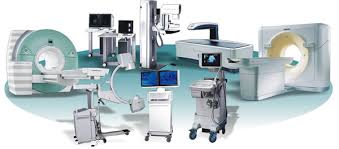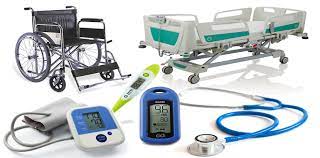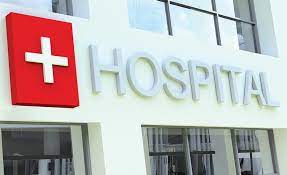
The Global Clinical Diagnostics Market was valued at around USD 56 billion in 2020 and is expected to grow at a steady compound annual growth rate (CAGR) of eight point fifty-nine percent (8.59%) during the forecast period (2020-2026).
The Nigerian clinical laboratory services market was valued at USD 504 million in 2020 and it is expected to reach USD 665 million in 2026, by registering a compound annual growth rate (CAGR) of four point seven percent (4.7%) during the forecast period (2021 - 2026).
The clinical diagnostics market is driven by increasing prevalence of diseases caused due to sedentary lifestyle such as diabetes, cardiovascular diseases, high blood pressure, lipid disorders, among others.
According to the data published on the global health data exchange, the top causes of death in Nigeria are malaria, lower respiratory infections, HIV/AIDS, diarrheal diseases, cancer, meningitis, stroke, and tuberculosis.
The number of malaria cases was around fifty eight million, one hundred and forty-three thousand, four hundred and fifty-eight (58,143,458) and the number of deaths caused by malaria was around one hundred and ninety-one thousand, one hundred and six (191,106), in 2019.
According to the same source, the number of tuberculosis cases was two hundred and eighty-eight thouand, two hundred and fifty-eight (288,258) and the number of cases for diarrheal diseases was around two hundred and forty-four million, five hundred and one thousand, five hundred and fifty-six (244,501,556), in 2019. Thus, the prevalence of infectious diseases is rising in the country, which is augmenting the demand for diagnostic services for the better management of diseases.
Furthermore, increase in the number of patients suffering from chronic kidney diseases and cancer is also expected to drive the market for clinical diagnostics during the forecast years. Additionally, benefits such as quick test results, easy procedure of testing, ease of procurement of samples, less pain, among others associated with clinical diagnostics are further anticipated to propel the market through 2026.
Clinical diagnostics includes medical tests that are performed in a pathology or a diagnostic center or hospital or any other medical facility to diagnose or detect any disease or any other medical conditions.
These tests help in early detection of a disease and identify the associated risk factors thereby creating opportunities for prevention and treatment.
The market studied is primarily driven by the rising incidences of chronic diseases and increasing demand for accurate disease diagnosis, along with the government’s focus on public-private partnerships.
However, the lack of medical laboratories, advanced diagnostic equipment, and inadequately trained laboratory staff are restraining the market’s growth. Nigeria is one of the developing countries that is facing double burden disease, i.e. the persisting high prevalence of communicable diseases along with the rising prevalence of non-communicable diseases.
In a World Health Organization (WHO) report, it is predicted that deaths from infectious diseases, maternal and perinatal conditions, and nutritional deficiencies combined are likely to increase by six percent (6%).
Deaths from chronic diseases are expected to increase by twenty-four percent (24%), and distinctly, deaths from diabetes are anticipated to increase by fifty-two percent (52%).
World Health Organization (WHO) estimates that a tw percent (2%) annual reduction in chronic disease death rates in Nigeria would result in an economic gain of USD 500 million for the country, over the next ten (10) years. The progression of chronic diseases can be prevented through lifestyle changes.
However, the early diagnosis of an underline disease is necessary for interventions to be effective. Thus, owing to the increasing burden of chronic diseases, the volumes of diagnostic tests are expected to increase rapidly, resulting in the expansion of the market.






















